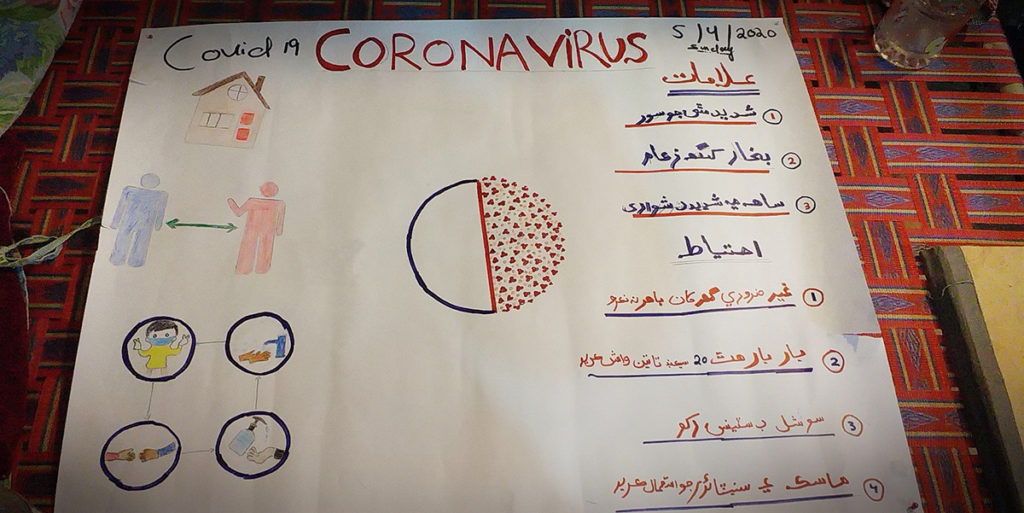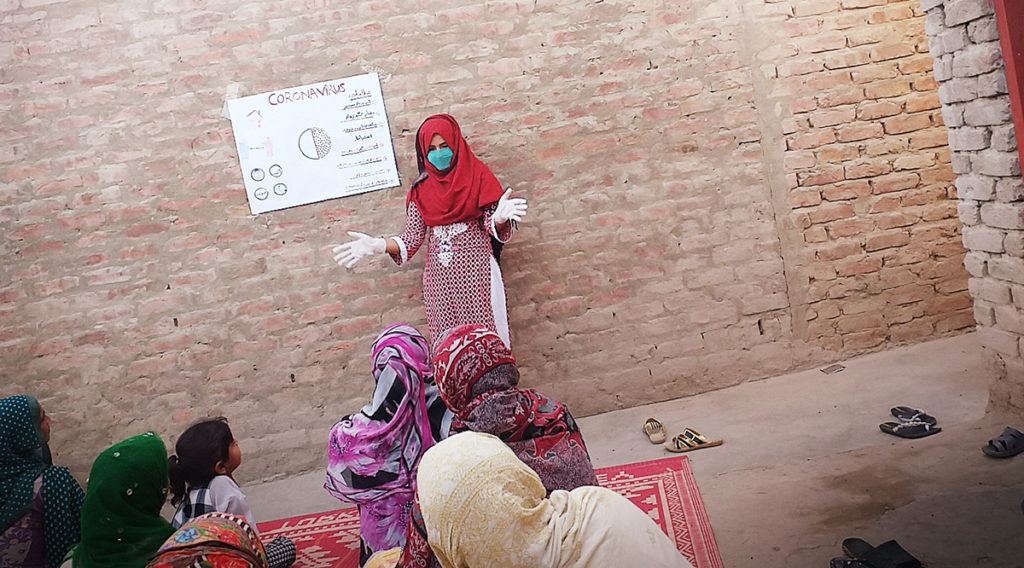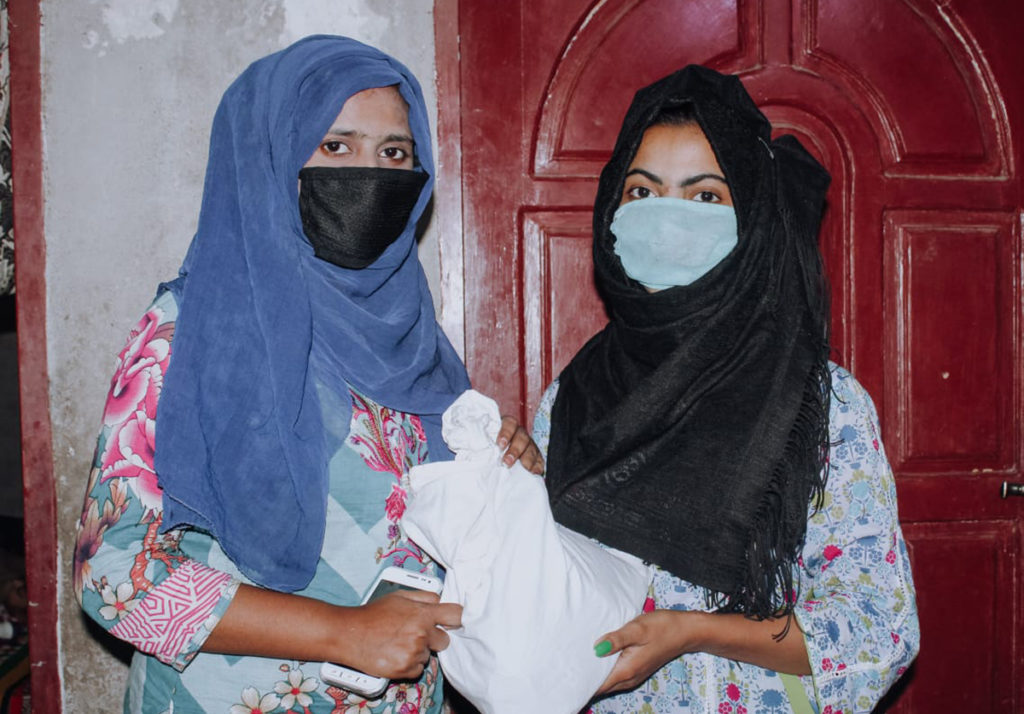Tackling Covid-19 in Pakistan: A young woman takes action
After the first cases of Covid-19 in Pakistan, daily life changed for citizens. One by one, the country’s provinces went under lockdown and cancelled all outdoor activities. Due to the lockdown, economic activities have almost halted.
In this situation, many youth are working as volunteer to support their communities. Salma Shoro is leading a EYW women’s youth group in her village Khanoth, located in Jamshoro district. She has played an active role in Covid-19 response activities in her community.
Quick response to action
Salma became aware of the threat of Covid-19 in early March of 2020. She initiated a campaign in her village and started raising awareness among other women, conducting over 20 visits to her neighbors and arranging 3 small sessions in her house. As Salma had remained quite active in her village and in surrounding villages, she became the central contact for many and helped over 100 women seeking help with registering for the ration packages announced by the government. She also accompanied women from her village to the nearby town of Majhand to receive cash support from the government.
Salma is committed to actively helping in this critical situation and is planning to help more women from surrounding villages when the lockdown is lifted. She also intends to support women in rural areas with recovery activities once the pandemic is over.
“At the moment I see two big problems for our community: youth unemployment and women’s housework.”
Halted economic activities
“Although many people are saying that unemployment due to lack of daily wage work is an urban problem, I think that it is not only urban issue. In my village, all shops are closed, and the laborers who used to go to nearby towns cannot find any work. Many people in my village are involved in transportation work and now they are all sitting at home.”
“Unlike urban areas where there is much work to do, in our community there is already a scarcity of employment opportunities and I think that youth in rural areas will be hit hard in next 6-8 months. I will give you my own example—I run a small shop inside my house, but since the markets are closed, I cannot get things that I need to sell. Public transport is also closed, so even if I could get some goods through other means it is very difficult to reach the supplier and I do not have the extra money to buy material in bulk.”
“I think that after this situation, the biggest problem that we are going to face will be recovering economically.”
Overload in household work for women
“As men are not going out much, the women have to do more work. Let me give you an example—my brother and my uncles used to go out, sit at restaurants and have tea there. Now, as the restaurants are closed, they stay at home and this means I must make tea more times a day. This applies to everything, from cleaning house to washing clothes. But there are some positive things as well. One of my relative takes care of his children at home, when previously it was all the women’s responsibility.”
“I have spread the message of this burden and want to raise more awareness about this, but unfortunately the situation does not permit us to go out and speak to communities face to face.”
Willingness to volunteer
“I am doing volunteer work because as responsible citizens, I believe everyone should volunteer to help. I want to help my community and people around me. I know I can’t go out and change the situation at country or province level, but I know I can still take steps to help.”
Salma has become an important figure for women. “Last month I arranged events for International Women’s Day celebration in nearby villages, and women there considered me an active girl from their community. That is why I was approached by many women when the government announced relief packages for poor. I am doing volunteer work because I think I can help.”
Awareness-raising is no small feat
Spreading awareness remains a much-needed action during the Covid-19 outbreak. “I live in a community where access to information is limited—my village is about 50 kilometres from nearest city. People here believe in my myths and in this situation, I noticed that many people are not taking the virus seriously and saying that it is only in cities not in rural areas. Additionally, most of the female in my community are not educated. It’s quite recent that female education at school level has become common, and many women are not aware of proper hygiene and how to take care of their family in this situation.”
Salma explains that because many people in rural areas are not educated and cannot read, so they listen. If wrong information is passed, it will go miles. She taught other girls from her community to only share information that is correct and comes from a credible source.
Future plans and messages to the community
Answering about her future plans, Salma says “In current situation, if you ask anyone what their future plans are, they will be confused. I have two things on my mind. One is how I can save my business, the other is how I can help my community in this situation.”

“I want to spread three messages. For my community, I will say “please, please take this virus very seriously. Stay home and stay safe.” For men in my community, I will say “please help women with their household work.” For youth, I will say “ we cannot afford to be dependent on our parents. Difficult times will come and our parents will need support, so spend less and contribute more.”


